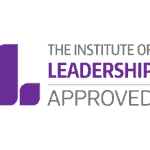Maintaining good mental health is supremely important. Our mental health determines how we feel, think and cope with life. The World Health Organisation states ‘Mental health is the foundation for the well-being and effective functioning of individuals.’

Mental health is based on the emotional, psychological, and social well-being of an individual. It impacts on our ability to function and our capacity to interact with our environment. When suffering from poor mental health our productivity, relationships with others and our feelings of self-worth are all impacted negatively.
Maintaining good mental health requires self-awareness – how can you address your stress levels if you are so busy ‘coping’ you don’t realise you’re stressed?
Maintaining good mental health also requires commitment and effort to address issues as they arise.
Once you become aware of the stressors in your life, your response to stress and the things you can do to maintain good mental health you become better able to proactively manage your mental health and wellbeing. In much the same way as noticing and responding to physical pain will help you to regain good physical health, noticing and responding to poor mental health will help you to regain good mental health.
We should also recognise that mental health and physical health are interlinked. The World Health Organization defines health as “a state of complete physical, mental and social well-being and not merely the absence of disease or infirmity.”
Time to Talk Day is the nation’s biggest mental health conversation and it takes place on the first Thursday in February every year. It’s aim to establish an environment that encourages progressive mental health growth and improves mental health conditions for all individuals not only in the United Kingdom but the world at large.
This years’ Time to Talk Day on 3rd February encourages us all to create supportive communities based on family, friends and colleagues that can help people who are facing mental health challenges. The theme rotates around three main ideas, Talk, Listen and Change Lives. We will all take our own understanding of what that means, here are my thoughts:
Talk
Having a conversation about mental health is tough. Many people who are struggling with a mental health challenge benefit greatly from having someone to talk with about their problems, and that doesn’t need to be a mental health professional. A compassionate friend, family member or colleague can provide what’s needed in many cases. So it’s important that when someone is struggling they know who they can turn to.
Listen
Listening is a communication skill we rarely learn to do effectively. The Chinese sign for the verb to listen includes the characters for the eyes, the ears, the mind, the heart and the undivided attention – that’s not how most of us listen.
For the talking part to be effective, the talker needs to know they are being heard. So if someone asks you to listen, how can you show that you are giving your undivided attention? Can you put your phone away? Look at them, or if that feels too intense go for a walk together? Can you listen without interruption? Are you prepared to park your similar experiences and just let someone else share their current reality? How often do you talk to someone about something that happened to you for them to hijack the conversation and tell you about a similar experience they had years ago? Ask open questions to build your understanding of the situation. Ask how you can help them, then listen carefully to whatever they say.
Change Lives
It’s rare that we learn the impact that we have on others, I love this TED Talk that speaks of how we impact the lives of others without knowing it, I encourage you to look for opportunities to make a positive impact on someone else’s life by taking the time to listen to them.
For me, every day is Time to Talk Day, to spread awareness of mental health issues, become a Mental Health First Aider, talk openly about your experiences with mental health issues and be prepared to listen to others with your eyes, your ears, your mind, your heart and your undivided attention.
Let’s join in, Talk, Listen and Change Lives!



